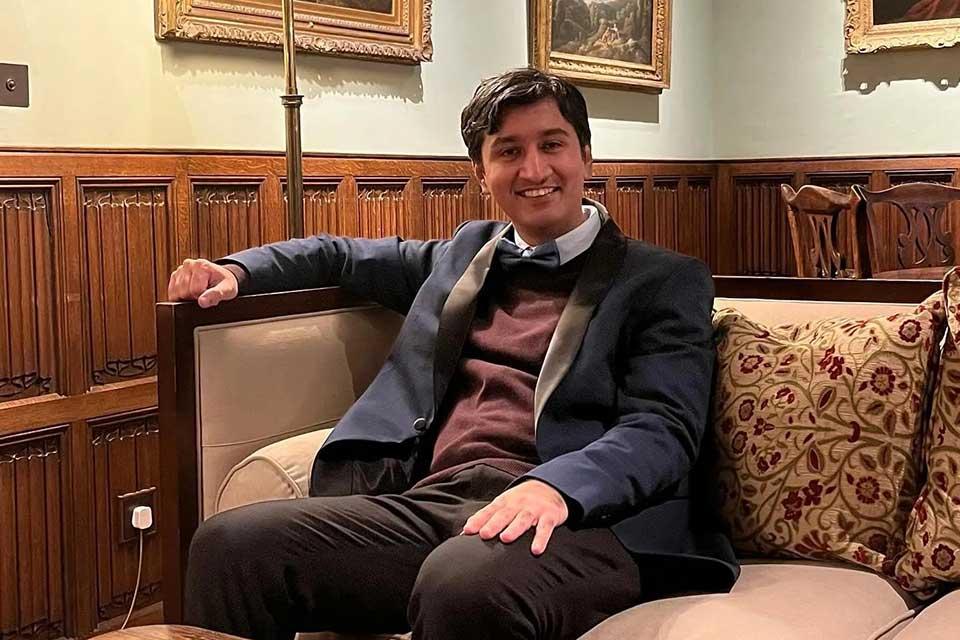Muhammad Hamza Waseem has won the MPLS Public Engagement with Research Award for his innovative approach to teaching quantum science to high school students.
Quantum Picturalism (QP) uses diagrams to simplify quantum theory – unlike traditional methods that could be heavily reliant on complex maths. QP provides a diagrammatic framework for understanding quantum concepts, translating algorithms into intuitive diagrams to visualise abstract phenomena. In 2023, Hamza Waseem was part of the team that brought the QP approach to a ten-week-long pilot study. Some 54 students, aged 15-17, took weekly two-hour online classes for eight weeks followed by assessments using Oxford postgraduate quantum physics exam questions. Over 80% of students passed, with about half earning a distinction, outperforming the average results of Oxford University postgraduates on the same exam. This study opens avenues for further exploration of QP's impact on quantum science education, addressing the skills shortage in the field.
‘I am honoured to be recognised for my outreach work, much of which was conducted alongside my DPhil research,’ comments Hamza. ‘This work was by no means my initiative alone; Quantum Picturalism was pioneered by Bob Coecke, and the current education and outreach project builds on two decades of research and a decade of university teaching. The pilot study, which involved teaching high school students, was carried out by a diverse team of scientists, educators, and science communicators. It has been a privilege to participate in this project, and I am thrilled to contribute to ongoing efforts to make quantum physics accessible to high school students and, eventually, to everyone. I am deeply grateful to the Department of Physics, particularly the outreach team, for supporting my science popularisation and public engagement activities throughout my DPhil.’
Professor Ian Shipsey, Head of the Department of Physics said: ‘The Quantum Picturalism project represents an outstanding example of public engagement with research impact. Not only is Hamza’s work demonstrably impactful in the context of the communities it serves – namely, young people with an interest in quantum physics – it also has profound and broad-reaching implications for science education.
'Hamza played a significant role as a co-lead tutor, he brought an innovative approach to teaching quantum physics to school children and I am sure that Hamza will continue to make meaningful contributions to quantum engagement in the future.’
The project team includes: Lia Yeh, Caterina Puca, Selma Dundar-Coecke, Bob Coecke, Stefano Gogioso, Aleks Kissinger, Sieglinde Pfaendler, Thomas Cervoni, Ferdi Tomassini, Vincent Anandraj, Peter Sigrist, Ilyas Khan and several lecturers and tutors. To read more about the project, visit the blog article on medium.com.

